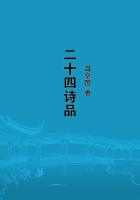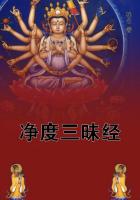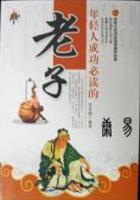Among the gods of eastern origin who in the decline of the ancient world competed against each other for the allegiance of the West was the old Persian deity Mithra. The immense popularity of his worship is attested by the monuments illustrative of it which have been found scattered in profusion all over the Roman Empire. In respect both of doctrines and of rites the cult of Mithra appears to have presented many points of resemblance not only to the religion of the Mother of the Gods but also to Christianity. The similarity struck the Christian doctors themselves and was explained by them as a work of the devil, who sought to seduce the souls of men from the true faith by a false and insidious imitation of it. So to the Spanish conquerors of Mexico and Peru many of the native heathen rites appeared to be diabolical counterfeits of the Christian sacraments. With more probability the modern student of comparative religion traces such resemblances to the similar and independent workings of the mind of man in his sincere, if crude, attempts to fathom the secret of the universe, and to adjust his little life to its awful mysteries. However that may be, there can be no doubt that the Mithraic religion proved a formidable rival to Christianity, combining as it did a solemn ritual with aspirations after moral purity and a hope of immortality.
Indeed the issue of the conflict between the two faiths appears for a time to have hung in the balance. An instructive relic of the long struggle is preserved in our festival of Christmas, which the Church seems to have borrowed directly from its heathen rival. In the Julian calendar the twenty-fifth of December was reckoned the winter solstice, and it was regarded as the Nativity of the Sun, because the day begins to lengthen and the power of the sun to increase from that turning-point of the year. The ritual of the nativity, as it appears to have been celebrated in Syria and Egypt, was remarkable. The celebrants retired into certain inner shrines, from which at midnight they issued with a loud cry, The Virgin has brought forth! The light is waxing! The Egyptians even represented the new-born sun by the image of an infant which on his birthday, the winter solstice, they brought forth and exhibited to his worshippers. No doubt the Virgin who thus conceived and bore a son on the twenty-fifth of December was the great Oriental goddess whom the Semites called the Heavenly Virgin or simply the Heavenly Goddess; in Semitic lands she was a form of Astarte. Now Mithra was regularly identified by his worshippers with the Sun, the Unconquered Sun, as they called him; hence his nativity also fell on the twenty-fifth of December. The Gospels say nothing as to the day of Christ's birth, and accordingly the early Church did not celebrate it. In time, however, the Christians of Egypt came to regard the sixth of January as the date of the Nativity, and the custom of commemorating the birth of the Saviour on that day gradually spread until by the fourth century it was universally established in the East. But at the end of the third or the beginning of the fourth century the Western Church, which had never recognised the sixth of January as the day of the Nativity, adopted the twenty-fifth of December as the true date, and in time its decision was accepted also by the Eastern Church. At Antioch the change was not introduced till about the year 375 A.D.
What considerations led the ecclesiastical authorities to institute the festival of Christmas? The motives for the innovation are stated with great frankness by a Syrian writer, himself a Christian. The reason, he tells us, why the fathers transferred the celebration of the sixth of January to the twenty-fifth of December was this. It was a custom of the heathen to celebrate on the same twenty-fifth of December the birthday of the Sun, at which they kindled lights in token of festivity. In these solemnities and festivities the Christians also took part. Accordingly when the doctors of the Church perceived that the Christians had a leaning to this festival, they took counsel and resolved that the true Nativity should be solemnised on that day and the festival of the Epiphany on the sixth of January. Accordingly, along with this custom, the practice has prevailed of kindling fires till the sixth. The heathen origin of Christmas is plainly hinted at, if not tacitly admitted, by Augustine when he exhorts his Christian brethren not to celebrate that solemn day like the heathen on account of the sun, but on account of him who made the sun. In like manner Leo the Great rebuked the pestilent belief that Christmas was solemnised because of the birth of the new sun, as it was called, and not because of the nativity of Christ.















